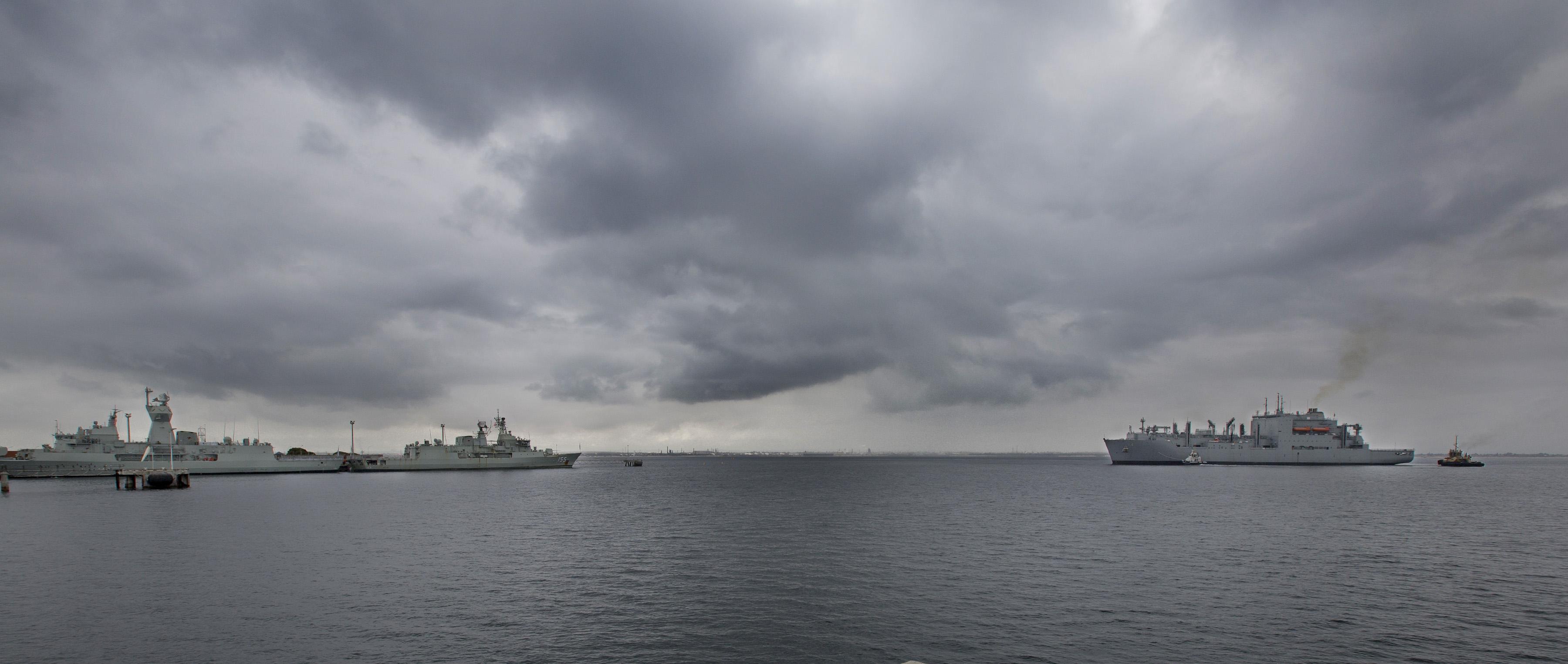The pulse in Washington: US analysts’ views on the rebalance and Australia
Posted By Hayley Channer on April 23, 2014 @ 12:37
Discussions with analysts in Washington over the last couple of weeks have provided a set of insights into how the US think-tank community views the US rebalance to Asia. I asked analysts from prominent think tanks and the National Defense University a number of questions, including how they saw the progress of the rebalance; how domestic and external factors were impacting the rebalance; and how they judged the contributions of US allies—Japan, South Korea and Australia—to US objectives in Asia.
On the first question—the progress of the rebalance—opinions were split. Some thought the US had pursued different aspects of the rebalance, be they military, economic or diplomatic, disjointedly, resulting in mixed messaging. During the first twelve months, the US had focused too heavily on military aspects of the rebalance, announcing Marine deployments to Darwin and increases in US Navy presence in the region. That signalled—incorrectly—that the rebalance was primarily about hard power. Then, from the end of 2012 to around October 2013, the momentum behind the rebalance was lost, primarily due to leadership transitions both in Asia and in the US, with President Obama shuffling his security team [2]. In the last six months, the focus has shifted away from the military and towards the economic aspect of the rebalance, namely the Trans Pacific Partnership (TPP). The overall effect has been to reinforce a picture of inconsistency, causing confusion and alarm in American allies in Asia and China.
Other analysts argued that all aspects of the rebalance—military, economic and diplomatic—had, in fact, been evenly pursued by the Obama administration and that the strategy had been well expressed. The problem, as they saw it, was the media’s over-reporting on the military dimension and its neglect of others, resulting in a misunderstanding of the rationale behind the pivot by China and by US allies.
Overall, analysts in both groups conceded that there had been too much talk on the rebalance and not enough action. They believed that, both US domestic issues (sequestration) and external factors—such as Russia’s intervention in Ukraine, the on-going civil war in Syria, and the negotiations with Iran over its nuclear program—had diverted American attention and made the Obama administration look more ’scattered’ in its approach. Compounding that perception were statements by senior US officials that had brought the rebalance into question. Analysts pointed to one such statement by US Secretary of State John Kerry, when he said he was unconvinced [3] a further military build-up in Asia was necessary, and another by the Commander of US Pacific Forces Admiral Samuel Locklear when he said climate change [4]—not China—was the biggest long-term security threat in the Pacific region. Analysts felt those statements were missteps that had undermined the core message.
What about the contribution of key US allies to the rebalance? On Japan, there was a measure of frustration regarding the snail’s pace of transitioning the Japan Self Defense Forces into a more ‘normal’ military and the ‘very low’ percentage of GDP allocated to defence spending (currently at 1% but due to increase [5]). Conversely, other analysts saw any advancement in Japan’s defence policy as positive. They preferred gradual changes to Japan’s constitution and defence spending lest a sudden adjustment further destabilise Japan’s relations with its neighbours. On South Korea, the feeling was that it should endeavour to repair its relations with Japan so that the two US allies can work more closely on security. Difficulties in Japan–ROK relations were identified as a major complication to the US realising many of its strategic goals in the Asia-Pacific.
How do they see Australia’s contribution to the rebalance? Not surprisingly, many commended Australia’s forthright response to China after Beijing announced its new Air Defence Identification Zone (ADIZ). One analyst described this as ‘critical to showing the region that Australia would stand up to China’ and said Australia’s action highlighted that ‘what China does affects every country in the region, not just those it has territorial disputes with’. Analysts also commended Australia’s consistent political support for the rebalance.
When asked to suggest what more might be done, analysts said that Australia could quicken the pace of the deployment of US Marines to Darwin, upgrade existing military bases in the Northern Territory and at HMAS Stirling in Perth, purchase more military hardware, and be more supportive of the US political positions in the region more generally. Australia could also be more assertive in its own neighbourhood, by deepening its relations with Indonesia and increasing its engagement with other ASEAN countries.
No doubt, American opinions regarding progress of the rebalance and the contribution of US allies to it will evolve as a consequence of Obama’s visit and other developments over coming months. Fresh insights into American perceptions of both the rebalance and other strategic issues will be the subject of future blog pieces.
Hayley Channer is an analyst at ASPI. She is currently a visiting scholar at the East-West Center, Washington DC. Image courtesy of Department of Defence [6].
Article printed from The Strategist: https://aspistrategist.ru
URL to article: /the-pulse-in-washington-us-analysts-views-on-the-rebalance-and-australia/
URLs in this post:
[1] Image: https://aspistrategist.ru/wp-content/uploads/2014/04/20140416ran8560098_051.jpg
[2] shuffling his security team: http://www.cbsnews.com/news/with-national-security-picks-obama-rounds-out-2nd-term-dream-team/
[3] he said he was unconvinced: http://www.voanews.com/content/kerry-concerned-about-us-military-buildup-in-asia/1590642.html
[4] he said climate change: http://www.bostonglobe.com/news/nation/2013/03/09/admiral-samuel-locklear-commander-pacific-forces-warns-that-climate-change-top-threat/BHdPVCLrWEMxRe9IXJZcHL/story.html
[5] currently at 1% but due to increase: http://world.time.com/2013/09/02/why-japans-first-defense-spend-hike-in-over-two-decades-isnt-going-to-buy-much/
[6] Department of Defence: http://images.defence.gov.au/20140416ran8560098_051.jpg
Click here to print.
